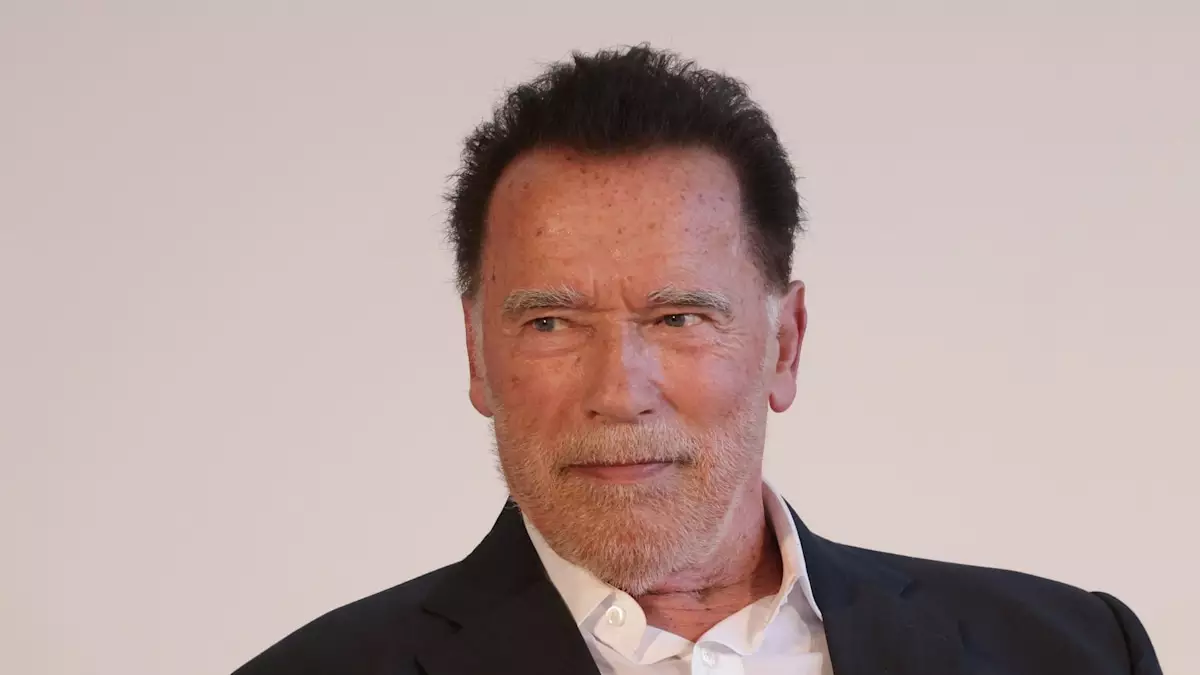In an unexpected twist in the political landscape, Arnold Schwarzenegger, the former two-term Republican governor of California and iconic action star, has publicly declared his support for Vice President Kamala Harris ahead of the upcoming US presidential election on November 5. This endorsement is especially striking given his historical ties to the Republican Party and the growing polarization within the political sphere. In a detailed post shared on X, Schwarzenegger laid bare his disillusionment with the current state of politics, signaling a significant departure from his previously held affiliations.
Schwarzenegger’s lengthy message encapsulates his frustration with both major parties, highlighting a pervasive sense of alienation among voters who crave authenticity and accountability from their leaders. “I don’t really do endorsements,” he begins, setting the tone for a candid discussion on the current political climate. By framing his decision as one rooted in a lack of trust for politicians rather than a partisan shift, he appeals to a broader audience that may feel similarly disenfranchised.
Schwarzenegger’s critique of the political landscape does not shy away from the uncomfortable truths. “I don’t like either party right now,” he admits, further emphasizing the rampant dissatisfaction felt by a significant segment of the American electorate. His sharp observations about the current political climate resonate with citizens who are exhausted by the incessant partisanship that characterizes contemporary governance.
This sentiment reflects a growing yearning for leaders who prioritize national unity over political gain. Schwarzenegger’s assertion that “rejecting the results of an election is as un-American as it gets” is a powerful reminder of the core values that underpin democracy. He positions his vote as a means of affirming his commitment to American ideals, urging his followers to prioritize country over party.
While endorsing Harris and her running mate, Tim Walz, Schwarzenegger does not shy away from confronting former President Donald Trump’s record. His vocal disapproval of Trump’s actions, particularly in relation to the January 6 insurrection, is emblematic of deeper concerns about the health of American democracy. Schwarzenegger labels the events of that day as a pivotal moment, stating, “We need to close the door on this chapter of American history.” This declaration underscores the urgency with which he believes the electorate must approach the upcoming election.
The former governor’s articulation of the need for collective healing and progress resonates strongly against the backdrop of a country grappling with division. By asserting that Trump has “insulted” democracy and will only exacerbate conflict, Schwarzenegger provides a stark warning about the consequences of allowing divisive politics to persist. He believes that the future hinges on the ability to elect leaders committed to inclusivity and constructive dialogue.
Schwarzenegger concludes his impassioned endorsement with a rallying cry for civic engagement, encouraging Americans to “Vote this week. Turn the page and put this junk behind us.” This exhortation transcends partisan lines, calling upon citizens to make their voices heard regardless of their individual political beliefs. By advocating for participation in democracy, Schwarzenegger emphasizes the foundational principle that every vote matters.
In an era where celebrity endorsements can significantly impact political campaigns, the support of Schwarzenegger—alongside others in the entertainment industry like Taylor Swift and Beyoncé—highlights the importance of diverse voices in shaping public discourse. His stance not only reflects his personal convictions but also underscores a broader movement among influential figures to inspire and mobilize their followers during this critical juncture in American history.
Arnold Schwarzenegger’s unexpected endorsement of Kamala Harris represents a profound moment within the current political landscape. It challenges traditional party loyalties while echoing a broader sentiment of disillusionment among voters across the spectrum. By prioritizing American unity over partisan politics, Schwarzenegger sets an example for a collective endeavor towards a more inclusive and democratic society. As the election approaches, his call to action serves as a timely reminder: in a democracy, the power lies in the hands of the people, and it is their duty to wield it with purpose and conviction.

